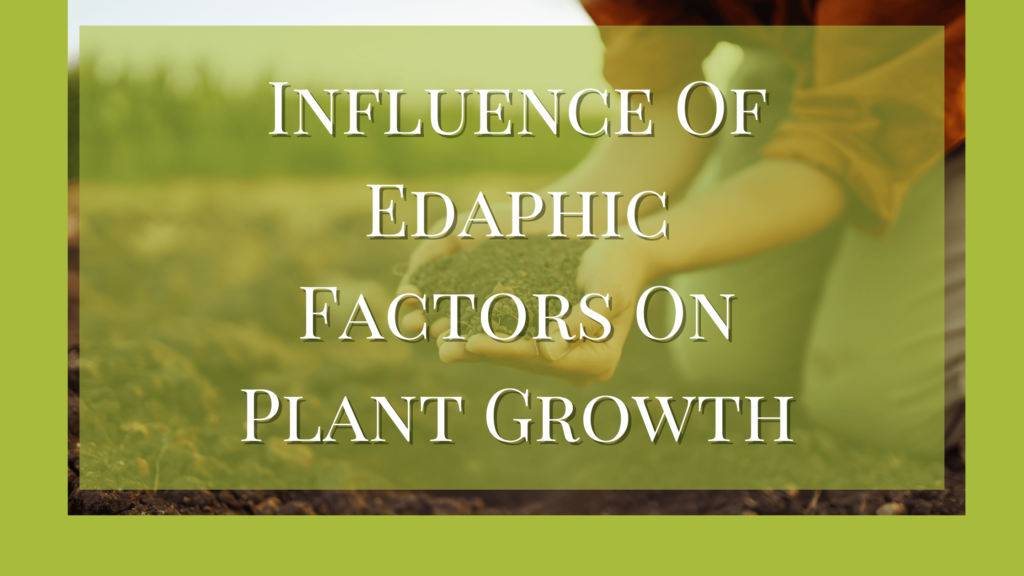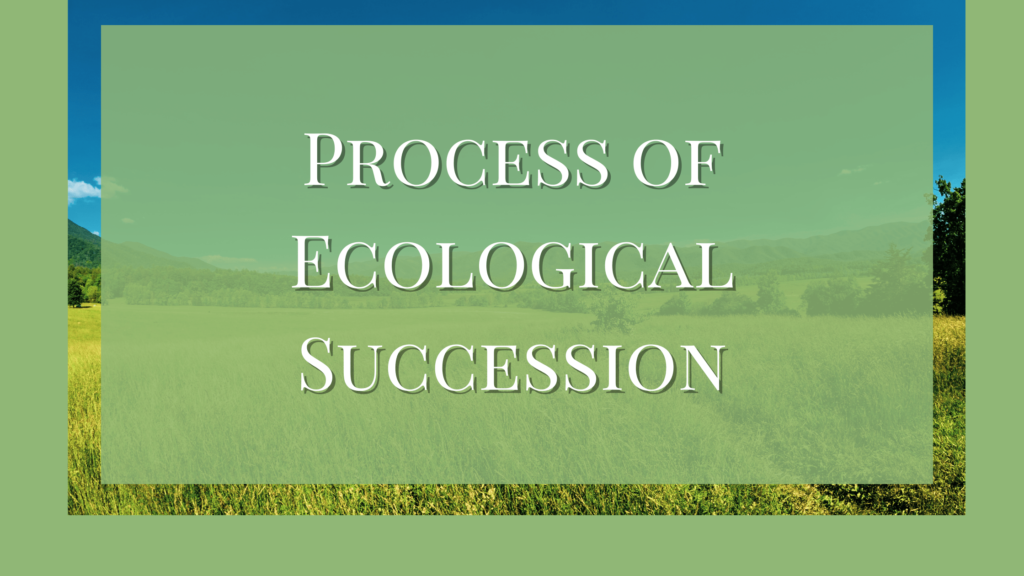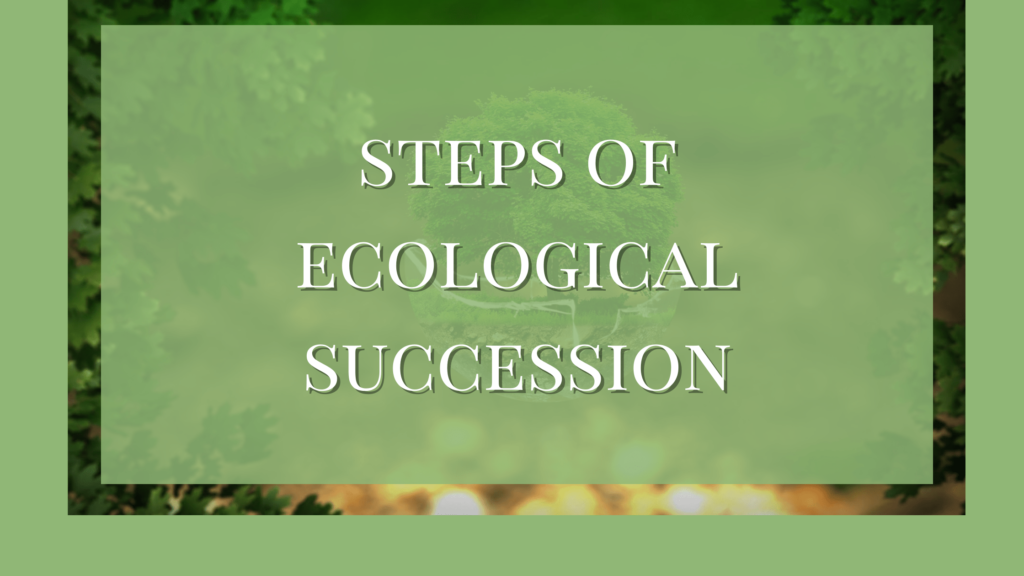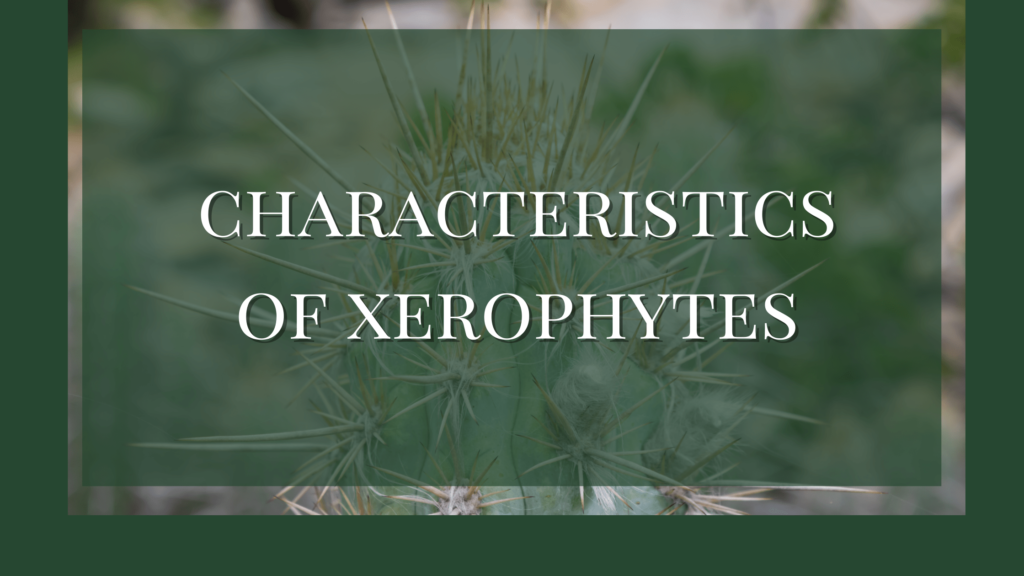The important edaphic factors that affect the growth of plants and vegetation in general are,
- Soil moisture
- Soil reactions
- Soil nutrients
- Soil temperature
- Soil atmosphere
- Biotic components of soil
Each of these factors has different types of influences on plants.
Soil Moisture
Plants rely on the water content in the soil for their growth. In general, the moisture level in the soil could range between 20-60% making it suitable for plants. However, every plant has a specific range of soil moisture that deems it suitable for that plant.
Heavily water-logged soil is not suitable for plants as it reduces aeration in the soil. This makes it difficult for the plant and inhibits their growth. It could also lead to temporary or permanent damage such as wilting.
Soil Reaction
Soil could be acidic, alkaline or neutral, depending on its components. Each soil type has its characteristics and nutrients that are available for the plants. A proper combination of these factors and compounds enables proper mineral as well as nutrient absorption by the roots.
Acidic soil increases the availability of iron and manganese while alkaline soil reduces their availability. Accumulation of minerals such as calcium, magnesium and sodium makes the soil alkaline.
Soil Nutrients
Soil contains different combinations of nutrients in it. Depending on which nutrient is present in more amount determines its characteristics as well. It also influences the availability of other nutrients. Such factors determine whether or not a particular plant can survive in such soil.
- Only halophytes can grow in saline soil having more amount of salts.
- Some plants prefer calcium-rich soil. Eg. Calciphytes and calcicoles. On the other hand, calcifuges or oxylophytes cannot survive in calcium-rich soil.
- The presence of humus is directly related to soil fertility. It contains both organic and inorganic nutrients for the plants. It also serves as a food source for microbes.
Soil Temperature
Soil temperature influences the properties of both soil and plants. Low soil temperature reduces the absorption of solutes and water. It causes root injury, esepcially during winter. Due to this, soil temperature can affect the geographical distribution of plants.
Soil Atmosphere
Soil is not tightly packed. It has air spaces in between the particles. Plant roots take in oxygen from these spaces. It is this air that supports the life of soil microbes as well.
However, the concentration of oxygen is low and carbon dioxide is high in soil when compared to the atmosphere. The underground plant parts depend on this oxygen for their respiration. Moreover, the soil atmosphere is essential for the germinating seeds.
Under these circumstances, water logging reduces the oxygen availability. Low availability of oxygen for germinating seeds could stunt their growth since they respire rapidly and will need more amount of oxygen for their survival.
Soil Organisms
The presence of biotic components of soil such as the microbes increases its fertility. They make various nutrients available for the plants. These microbes secrete certain hormones into the soil that can either be beneficial or harmful to the plants.
Blue green algae such as Nostoc, Ananbaena etc help with nitrogen fixation. They can fix atmospheric nitrogen into compatible compounds for the plants that they can absorb.
The presence of burrowing animals helps the plants establish their roots. These animals turn over the soil amking it more suitable for plant growth. Earthworms improve the soil fertility with their faeces and loosens the soil.
The various distribution types of plants help with recharging soil composition and improving soil fertility over the period.
References
- Shukla, R.S. and Chandel, P.S. (2001) Plant Ecology. S. Chand and Company Ltd., New Delhi.
- Verma, P.S., Agarwal, V.K. (1999). Cell biology genetics molecular biology evolution and ecology. New Delhi: S.Chand Co.(Pvt) Ltd.
- Rajakaruna, N., & Boyd, R. (2007). Edaphic Factor. Encyclopedia of Ecology, 1201-1207. https://doi.org/10.1016/B978-008045405-4.00484-5
Additional Reading




